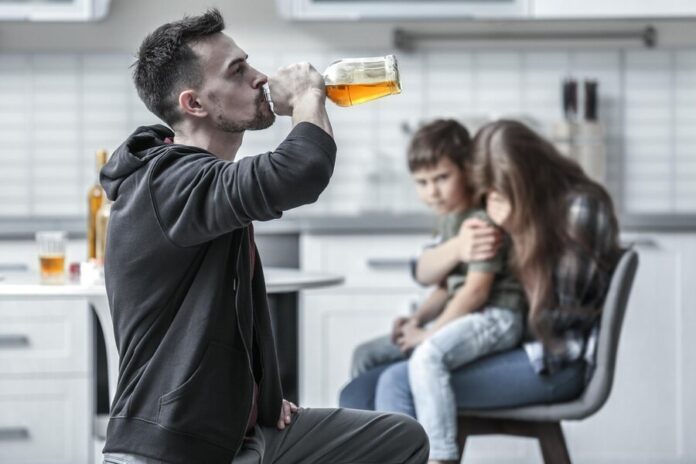Alcohol addiction is a pervasive issue that affects millions of individuals worldwide, tearing apart the fabric of families, relationships, and personal well-being.
Breaking free from the chains of alcohol dependency is a monumental task, requiring comprehensive and dedicated efforts.
In this article, we delve into the critical role of alcohol rehabilitation in dismantling these chains and facilitating the rebuilding and reclaiming of lives.
Understanding the Grip of Alcohol Addiction
Before exploring the role of alcohol rehab, it’s essential to understand the intricacies of alcohol addiction.
The physical and psychological dependence on alcohol creates a powerful grip, making it challenging for individuals to escape its clutches.
Alcoholism is often intertwined with co-occurring mental health issues, creating a complex web that necessitates specialized interventions for effective treatment.
Spiral of Alcohol Abuse
Alcohol abuse rarely occurs in isolation. It often marks the beginning of a downward spiral, affecting various aspects of an individual’s life.
From strained relationships and deteriorating physical health to impaired professional performance, the consequences of alcohol abuse can be far-reaching.
Recognizing the depth of this spiral is crucial in comprehending the urgency of effective intervention through alcohol rehabilitation programs.
Multifaceted Approach of Alcohol Rehab Programs
Alcohol Rehab in Nottingham adopts a holistic and multifaceted approach to address the diverse aspects of alcohol addiction.
These programs encompass detoxification, counseling, therapy, support groups, and aftercare services. Each component plays a vital role in breaking the chains of addiction and setting individuals on a path toward recovery.
Detoxification
The first step in alcohol rehabilitation is often detoxification, a process aimed at eliminating alcohol from the body. This phase can be challenging, as withdrawal symptoms may range from mild discomfort to severe complications.
Medical supervision during detox is crucial to ensure a safe and supportive environment, breaking the physical chains of alcohol dependency and preparing individuals for the next stages of rehabilitation.
Counseling
Alcohol addiction is not just a physical dependence; it deeply roots itself in the psyche of the individual. Counseling sessions within alcohol rehab programs help unravel the psychological chains by addressing underlying issues and triggers.
Cognitive-behavioral therapy (CBT), motivational enhancement therapy (MET), and other evidence-based approaches empower individuals to develop coping mechanisms and build resilience against the lure of alcohol.
Therapy
Rebuilding lives after alcohol addiction involves more than just abstaining from alcohol. It requires addressing emotional scars and developing healthier ways to navigate life’s challenges.
Various therapeutic modalities, such as individual counseling, group therapy, and family therapy, contribute to the process of emotional healing.
Therapy becomes a cornerstone in rebuilding emotional well-being, fostering self-awareness, and enhancing interpersonal skills.
Support Groups
Alcohol rehab programs often incorporate support groups, creating a sense of community among individuals sharing similar struggles.
These groups, like Alcoholics Anonymous (AA), provide a platform for individuals to share their experiences, challenges, and triumphs.
The camaraderie in support groups serves as a powerful tool in breaking the isolation that often accompanies alcohol addiction, reinforcing the idea that individuals are not alone in their journey toward recovery.
Aftercare Services
Completing an alcohol rehab program marks a significant milestone, but the journey toward sustained recovery continues beyond the initial treatment phase.
Aftercare services play a pivotal role in supporting individuals as they reintegrate into their communities.
These services may include ongoing counseling, support group participation, vocational training, and assistance in building a sober support network.
By providing a safety net after formal treatment, aftercare services help individuals sustain the chains of sobriety in the face of post-rehab challenges.
Addressing Co-Occurring Disorders
Alcohol addiction often coexists with mental health disorders, creating a complex interplay of challenges.
Effective alcohol rehab programs address these co-occurring disorders simultaneously, recognizing that treating one without the other may lead to relapse.
Untangling the complexities of dual diagnosis involves a comprehensive and integrated approach that combines mental health interventions with addiction treatment, providing individuals with the tools to overcome both aspects of their challenges.
Importance of Family Involvement
Alcohol addiction doesn’t just affect the individual; it ripples through families, straining relationships and causing emotional turmoil.
Inclusive alcohol rehab programs involve families in the recovery process, recognizing the pivotal role loved ones play in providing support and understanding.
Family therapy sessions, education on addiction, and the development of healthy communication patterns contribute to restoring broken bonds and creating a supportive environment for sustained recovery.
Conclusion
Alcohol rehab serves as a beacon of hope for those entangled in the chains of alcohol addiction, offering a path to break free, rebuild, and reclaim lives.
The multifaceted approach of these programs addresses the physical, psychological, and emotional aspects of addiction, providing individuals with the tools and support needed for a successful recovery journey.
As we recognize the importance of breaking these chains, we also acknowledge the resilience and strength individuals exhibit as they embark on the transformative journey toward a sober and fulfilling life.


